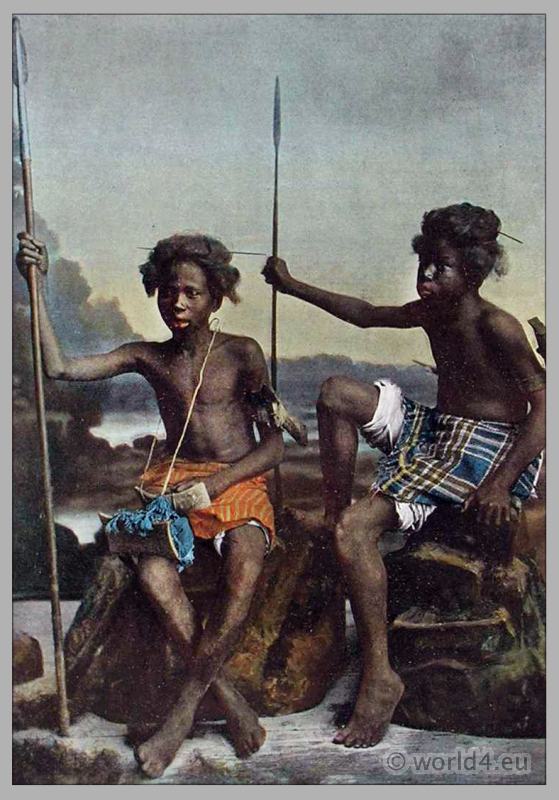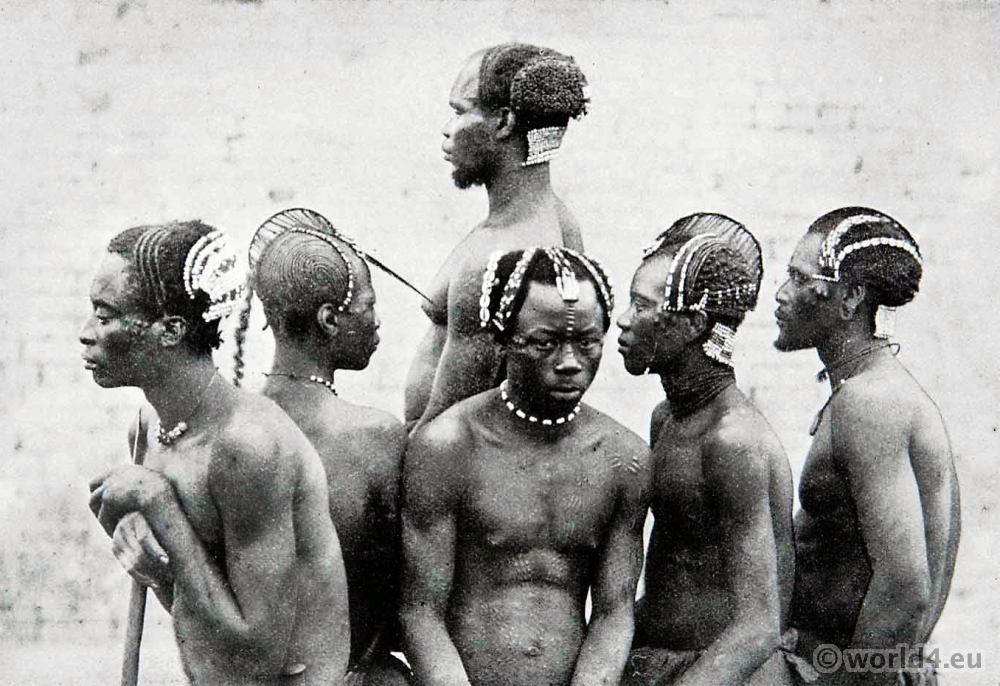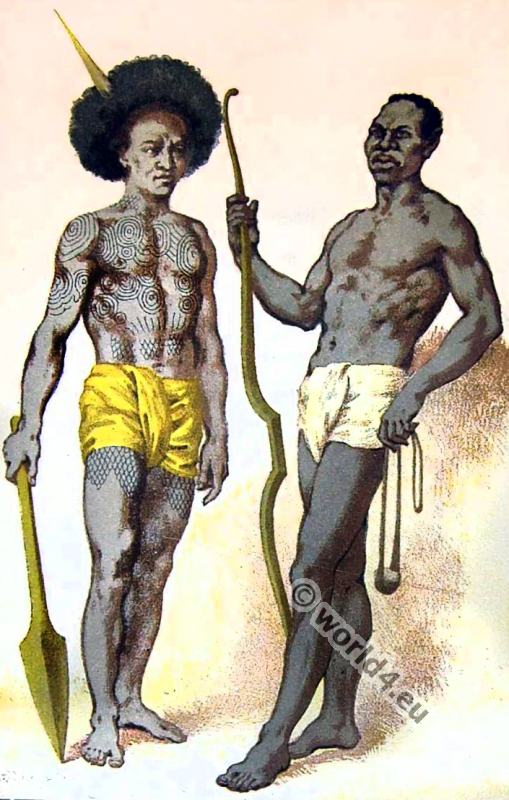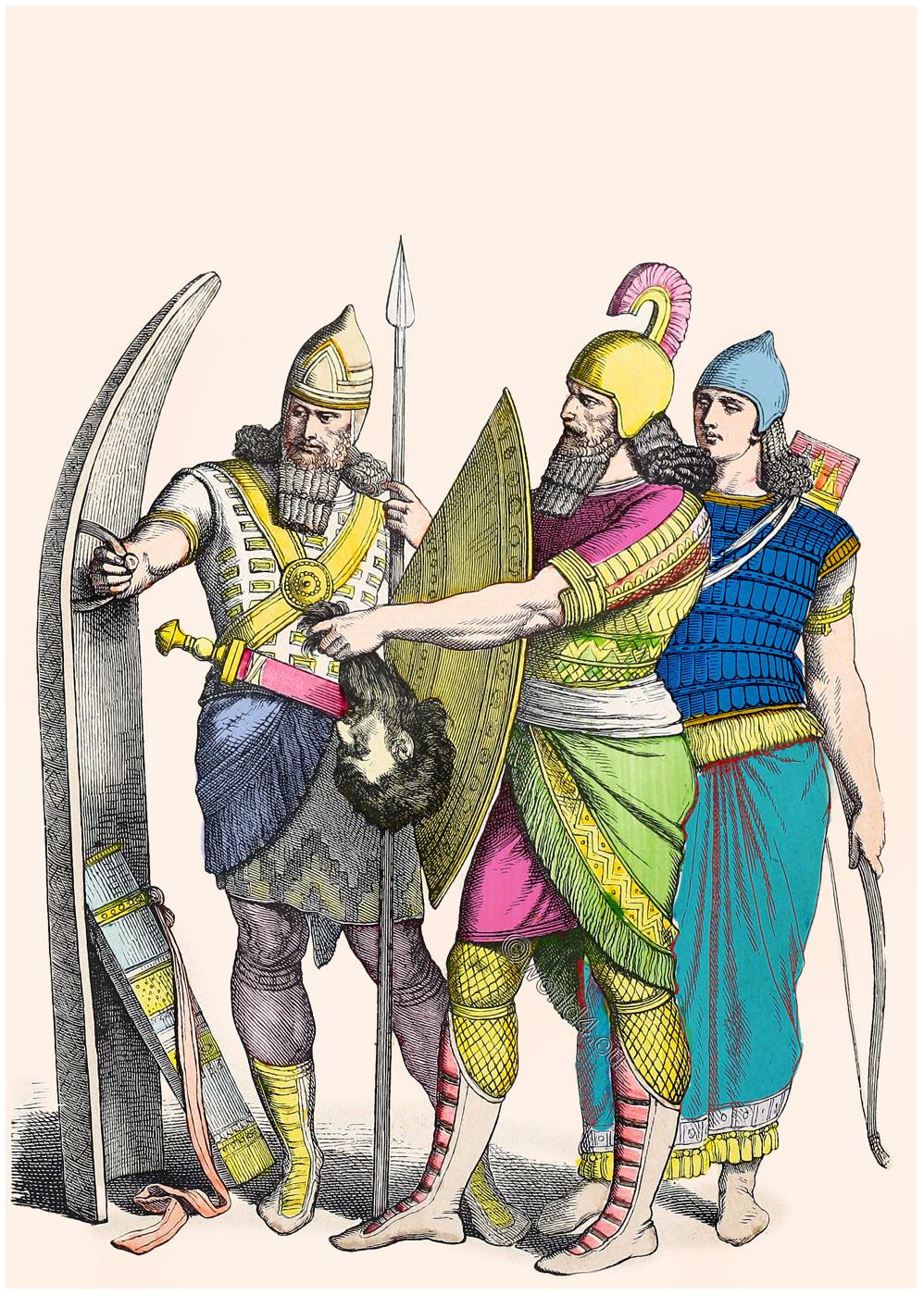Warriors of the Ababda with spears. Guerriers Ababdeh.
Guerriers Ababdeh.
Source: Auteur du Monde Souvenirs de Voyages, Paris, 1895. Éditeur: L. Boulanger.
The Ababda or Ababde (عبابدة) are mostly a nomadic tribe of the Bedouins of Upper Egypt, a subgroup of the Beja; some still speak Beja, the language of the Cushitic subgroup, while others speak Arabic
They live in the eastern desert of Upper Egypt between Nile at Aswan to the Red Sea, and live north of the Kena-Kossier route, thus occupying the southern edge of Egypt east of the Nile including Gebel Elba National Park, and in Nubia in northern Sudan. They call each other “sons of the Jinns”. Together with some of the Bisharin clans and possibly with the Hadendoa, they represent the Blemians of the classical geographers, and their present location is almost identical with that assigned to them in Ancient Roman times.
They feel most closely related to the Bisharin. Their language is the Bedja language (Bedawi), but they also use the Arabic language. A traditional and often used musical instrument of the Ababde is the five-stringed tanbura.
The Ababda are said to be descendants of the ancient Troglodytes and Blemmyers. They used to work as caravan leaders, among other things. Many of them served with the Anglo-Egyptian troops during the Mahdi uprising (1881-1899). The number of Ababda was estimated at about 40,000 around 1888, current figures are not known.
In the course of the last decades, the eastern desert has become drier and drier, i.e. the few known springs, especially in the mountains, are drying up or have dried up for the most part. As a result, living conditions for the Ababda have deteriorated to such an extent that the government has advised them to settle in the Nile Valley. Some of them then settled permanently in the Nile Valley.
Related
Discover more from World4 Costume Culture History
Subscribe to get the latest posts sent to your email.







